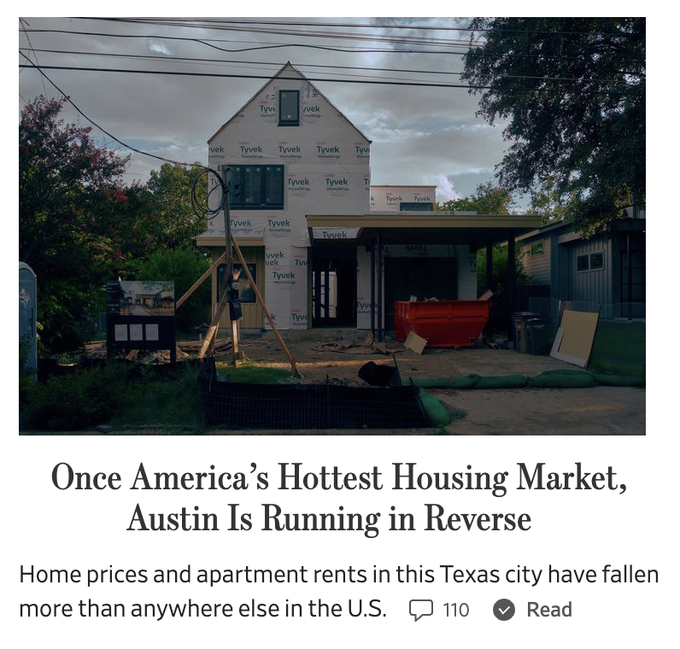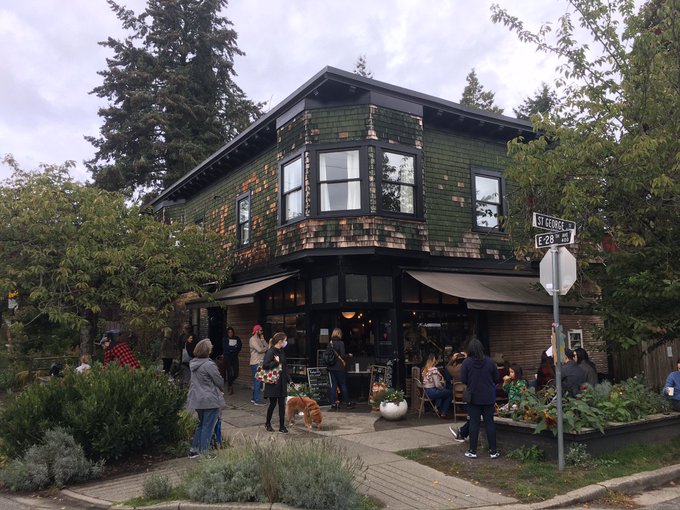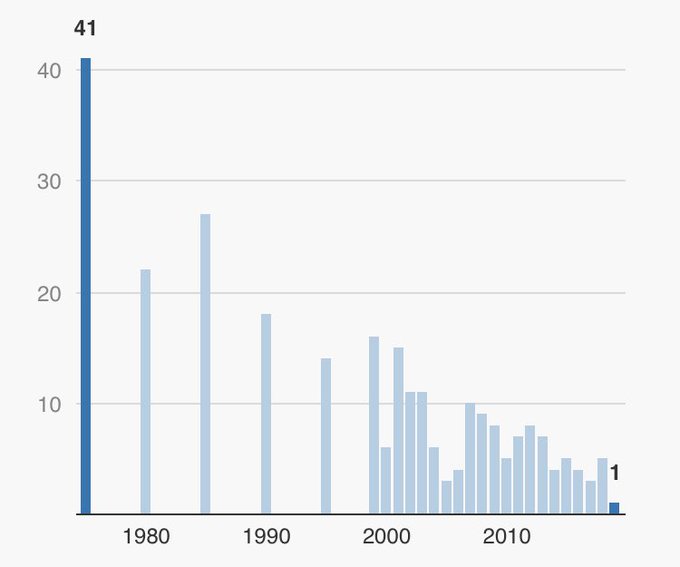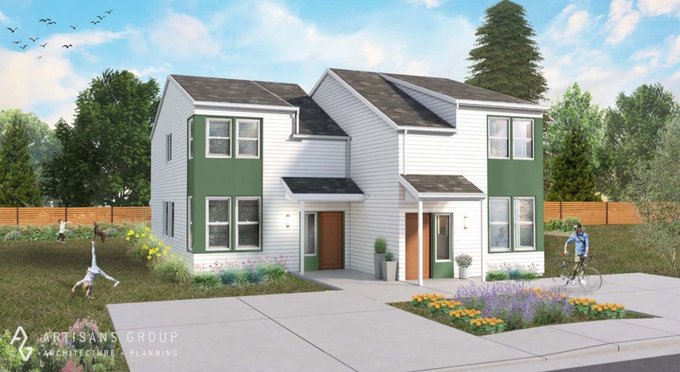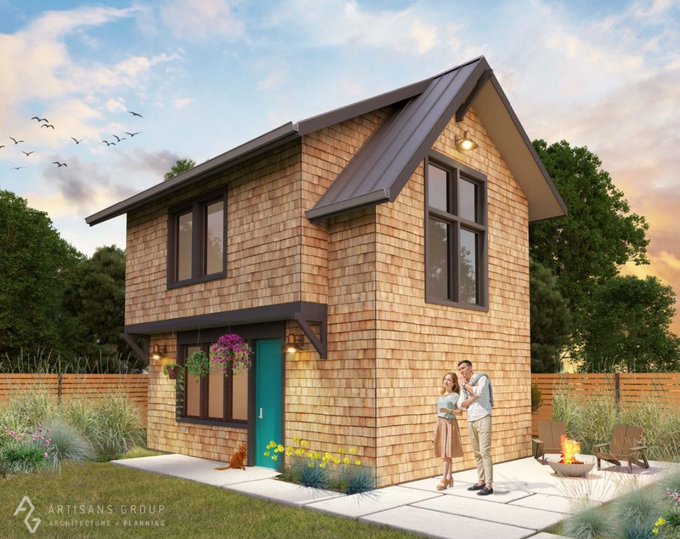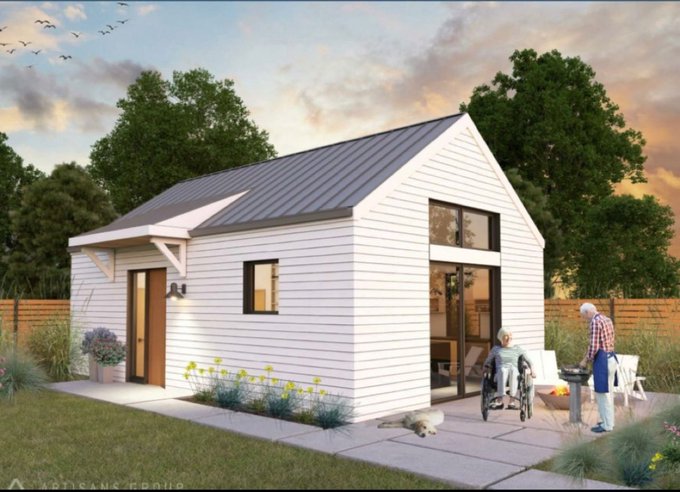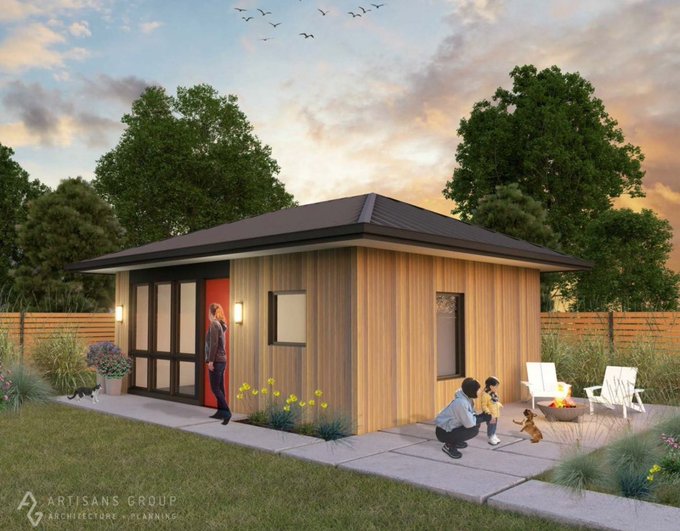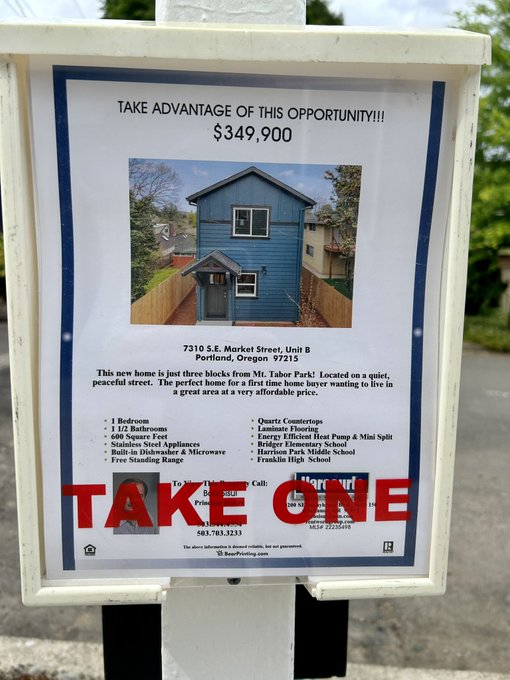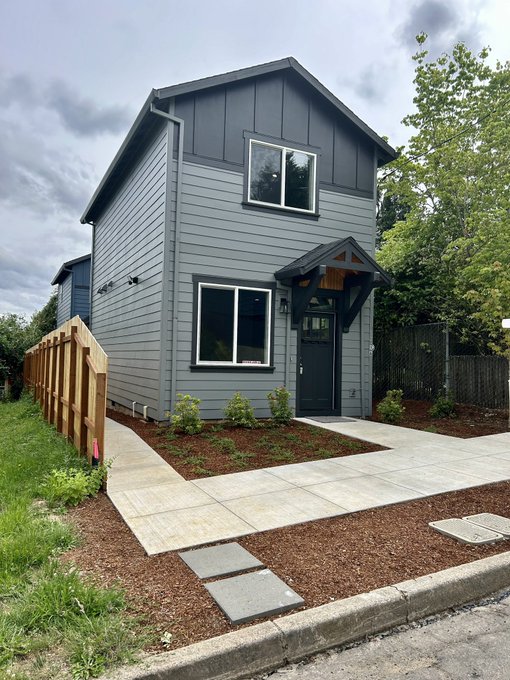
Daniel Herriges
@dpherriges
Followers
4,046
Following
1,198
Media
310
Statuses
4,607
Policy Director @Parking_Reform . Writer @StrongTowns . Co-author, "Escaping the Housing Trap" with @clmarohn : . Tweets are my own.
Saint Paul, MN
Joined November 2018
Don't wanna be here?
Send us removal request.
Explore trending content on Musk Viewer
FEMA
• 1463443 Tweets
2NE1
• 319490 Tweets
Joker
• 168200 Tweets
#XiaoZhan33rdBDAY
• 158308 Tweets
天使の日
• 131059 Tweets
Mancuso
• 92450 Tweets
Campana
• 73660 Tweets
名探偵ピカチュウ
• 56321 Tweets
Grammys
• 51543 Tweets
AFFAIR EP6
• 37538 Tweets
Ocho
• 35966 Tweets
Bielsa
• 34801 Tweets
Pogba
• 34283 Tweets
Trump Bible
• 32116 Tweets
Ramírez
• 24816 Tweets
Uyuşturucu
• 20802 Tweets
HAPPY 2nd BIRTHDAY SMILEY
• 19380 Tweets
Best Record
• 17989 Tweets
マジルミエ
• 16965 Tweets
栞子ちゃん
• 13560 Tweets
菅野メジャー
• 12189 Tweets
Last Seen Profiles
Is YOUR city plagued by an epidemic of *checks notes* children playing in parks?
The Parks & Rec Dept. in
#Arlington
says residents are complaining about daycare children constantly using the parks.
They're proposing daycares/preschools in town pay anywhere from $3,000 to $5,000 in fees to use them (money will be used to maintain parks)
Thoughts?
@wbz
2K
300
1K
49
658
8K
Hot take:
I should be able to walk around my city wearing earbuds.
Or casually texting somebody.
Or moderately drunk.
Etc.
Because I am not the one who is a danger to anyone.
Design streets so safely (i.e. for slow speeds) that distracted walking is fine.
46
155
2K
This is easy to mock, but the attitude that people who drive are engaging in a basic, necessary function, while anyone traveling by any other means is making a "lifestyle choice," is *extremely* ingrained in American thinking. Not just among these sorts of culture warriors.
@LauraGMitchell
Who else but entitled bikers would think they could have their own permanent parking garage on a public street? Snowplowing would be a nightmare. Bikers are making a lifestyle choice and don’t deserve special transportation perks from the public.
94
0
27
7
129
1K
Demand for driving is pretty elastic; if you build a lot more roads, and build everything farther from everything else, people will drive more.
Demand for housing is quite inelastic; most people want exactly 1 home, absolutely don't want 0, and probably can't use 2 or more.
21
100
1K
The replies to this are hilarious. Everyone's a critic. So far I've learned that it's physically impossible to bike in snow, that you can't park your car outdoors in a Minneapolis winter, and that I'm probably a moral monster because my house doesn't have an elevator.
67
23
1K
Jeff Speck talks about how Americans view the car as a "prosthetic device"—basically an appendage of the self.
To someone who thinks this way (and millions do), unbundling parking from rent sounds as absurd as paying a surcharge to get an apartment with a kitchen, or a shower.
32
78
1K
Whole lot of people in this thread chastising or concern-trolling Chicago bike safety advocates for shutting down Lakeshore Drive as a protest. "You're creating division / antagonizing motorists / not helping the cause."
The Netherlands would like a word.
8
114
957
I encounter this idea a lot that Sunbelt metros are less restrictive in their zoning than infamously expensive areas like coastal California or the Northeast. This is largely untrue.
For the most part, these places just haven't pushed up against the physical limits of sprawl.
26
76
804
The prevailing narrative of gentrification in America—certainly in the media—is that new development transforms a neighborhood and displaces an established community.
The greatest actual drivers of displacement are rendered all but invisible by this narrative. For example:
4
78
734
My answer to this is twofold:
1) "Stay affordable through rapid horizontal growth" is a strategy that only works until you crash into Marchetti's Constant.
LA, SFBA, NYC, DMV all hit this wall long ago. I'd argue Atlanta is an example of a metro that has recently gotten there.
8
31
538
"Texas's housing policies" mostly look like this photo. I don't know where, or whether, people think California should be building more of this.
CA should upzone a ton, reduce delays, fees, and avenues for NIMBY obstructionism. But that doesn't really amount to emulating Texas.
67
32
529
All the supposedly unsolvable logistical problems that require our streets to be built for supersized vehicles have actually been solved in many other parts of the world.
"But the [fire trucks / trash collection / deliveries]!" is just an excuse.
8
73
511
Maybe my least YIMBY opinion is that most US metros have so over-expanded, for decades, that the best policy now would be ~0 greenfield growth. Even if it results in less total housing production
Almost all exurban development is a net negative at this point, regardless of form.
39
26
497
Metro Detroit, Cleveland, Buffalo etc. all have this basic story: *massive* suburban expansion during a period of virtually zero net population growth.
The region's familiar story of urban blight + decline is at least as much about this as it is about closing factories.
@samueljrob
Confirms what all urbanists have been saying about sprawl for decades. SE Michigan has had the same population since about 1970 but has built 50% more infrastructure.
@StrongTowns
@the_transit_guy
@maxdubler
@Boenau
@cnunextgen
@retrofitsuburbs
2
21
118
7
89
502
Reducing the housing crisis to "affordability" in a narrow sense (like statistics on household rent burden) misses this kind of human element: there are huge numbers of people with very individual situations whose choices in life are constrained by a lack of housing options.
12
60
492
The housing trap: Americans want housing to be affordable. But we don't want home prices to actually go *down*.
This tension is evident in the narratives promulgated by big mainstream publications.
20
54
465
"Why can't the developer show some respect for the community by acknowledging and responding to immediate neighbors' concerns?"
I've heard this a lot, often probably meant in good faith. But when the answer is no, this is why:
9
28
393
@ksusys
What I'm saying is the amount they need to pay drivers in order to recruit and retain them is more than what riders often feel a rideshare trip "should" cost.
They did subsidize service for years. The idea they could easily raise wages now while keeping fares low is an illusion.
11
8
358
In most US cities, "getting people out of their cars" completely isn't the right framing for urbanists. It's making *enough* of everyday life car-optional that households can scale back their dependence on them.
18
38
349
But it does also affirm for me that we're doing something at
@StrongTowns
that doesn't map onto the typical liberal-conservative understanding of politics, and sort of scrambles people's preconceptions as a result.
3
5
309
I am definitely afraid that the primary outcome of federal money for highway teardowns is going to be a lot of stroad projects like this one, with the obligatory Complete Streets box-checking / greenwashing.
8
36
313
Yes, and: when people tell you they're opposed to "commercial" use in neighborhoods, they are never ever picturing this. More likely a CVS with giant parking lot.
It's on planners for failing to communicate this vision, amid lots of abstracted talk of "density" and "mixed use."
4
38
299
A lot of public engagement by planners is worthless bc it starts with the wrong premise: finding out which plans or priorities "the community" prefers.
This is an unanswerable question and leaves everyone in the process feeling like their time has been wasted, because it has.
@lankybutmacho
My broad take on engagement is that what we seek to learn matters more than who we hear from or how we ask.
Ask the public about the thing they're actually expert on: namely, their experiences and struggles using city services and the built environment.
2
14
95
9
19
285
Adult life could be a lot more like some of the best things about college (easy to meet people, lots of unplanned socialization, daily needs in walking distance) if we would just design cities for it.
3
77
261
Density is not the magical affordability button that some think it is.
Yes, it distributes high land costs across multiple households, but the diminishing returns from that are met pretty quickly. Note the slope of the blue curve.
This is why Missing Middle is a sweet spot.
@RegimeCPA
@DanielStrTowns
Skyscrapers? Ha! You want a high price per foot? That’s how ya do it.
2
0
6
41
41
261
@mateosfo
LA has the bones to be a great transit, walking, and biking city. And the huge ROW to convert its stroads to multimodal boulevards. Political will is on its way.
I'm actually more bullish on LA making the transition out of car-dependency than probably 98% of US cities.
5
6
251
The implicit ideology of zoning is that neighborhoods are static: once built, their basic physical character should never change. Once in a while you see someone make it explicit.
Real cities can't operate this way. Communities' needs evolve, and so must the built environment.
@HousingSpock
@TheOmniZaddy
@amoralorealis
So any rezoning of nearby land is fine. Why not a refinery? Why not a sewage treatment plant? Zoning is a concept whereby “the neighborhood plan” is known by all parties in advance. REzoning is unfair to those who invested in properties, made improvements, planted trees, etc
19
0
4
14
33
246
How much of the proliferation of HOA communities is because homeowners really want them? And how much is because local governments have outsourced to private developers the job of planning the public realm and maintaining common amenities and infrastructure?
21
13
241
Long before a popular place runs out of space to accommodate everybody who wants to be there, it will run out of space to accommodate everybody's cars.
The answer for these places is that non-car transportation must become dominant. Equally true of lower Manhattan and Lake Tahoe
4
25
223
This is so demoralizing.
I've seen a bunch of cases where successful and popular pandemic-era open streets programs are ended—not because anybody is even asking for it, but simply in a reversion to brain-dead bureaucracy and/or the default assumption of "streets are for cars."
4
28
210
So excited to get to announce this news!
Exciting announcement 🚨
We are thrilled to welcome Daniel Herriges
@dpherriges
as our new Policy Director!
7
6
91
33
3
209
Many Americans' first reaction to the idea of Vision Zero is dismissive laughter: "You can't literally mean *0* road deaths, right?! I mean, that's impossible! There will always be accidents!"
Oh hey there, Norway.
This makes me happy:
Road deaths in Oslo (pop. 673.000) in 2019:
Pedestrians: 0
Cyclists: 0
Children: 0
The graph shows the reduction of road deaths since 1975.
Article in Norwegian:
#VisionZero
81
2K
4K
7
71
185
Anyway, narrow lanes save lives, and 10 ft max should be the default on urban streets. Engineers should have to justify going any wider.
But don't take it from me, ask researchers at the
#1
public health school, who studied the question.
5
8
175
Love the growing trend of cities offering pre-approved plans.
6
18
164
Seen Californians double-take at the fact that these fees in other states are only in the 4 figures.
Prop 13 in CA has been an absolute disaster. Local governments scrounge for revenue anywhere they can get it, tax the hell out of new development to benefit longtime homeowners.
3
22
157
Highways opened up vast rural areas for development by placing them within an easy commute of downtown. This plus redlining caused urban land values to plummet. Federal mortgage policies favored new suburban homes.
White flight didn't just happen, it was induced by public policy
13
17
157
Many QTs dunking on this for still not being cheap. Turns out construction costs money.
It's not popular to say, but there's likely no set of policy reforms that will make brand new market-rate housing affordable to the working class. Older homes, though, can and should be.
The dream of the affordable starter home can be found in Portland. We haven’t seen these sales prices in a decade.
#smallscale
173
40
1K
23
11
155
In urban planning I'd pinpoint 2 things:
1) Public engagement that foregrounds the opinions of the loudest voices, rather than the actual needs / experiences of the public.
2) Overreliance on projections, models, and plans, vs. designing systems that are responsive + adaptable.
7
19
153
Memo from a left-wing New Urbanist: this is nonsense. It's a good thing when good ideas have appeal across the political landscape. Not everyone has to be on board for exactly the same reasons. (1/5)
@NewUrbs
Memo to New Urbanists: it is deeply distressing that your good cause gets tied up into conservatism. Stop publishing in such outlets! OMG, do you want to win or not?
15
0
1
11
22
151
What passes for American urban planning these days is 20% shaping the public realm, 80% micromanaging the private realm. Those percentages should be reversed.
2
16
153
Everyone likes the *idea* of design standards. Duh. People like nice looking buildings.
But in practice, those standards usually mandate the exact kind of building everyone hates! I feel like a lot of people out there would be scandalized by this if they realized it.
@jake_gotta
@gatodejazz
@boyonabike62
and building code restrictions! but it's dark comedy how one of the features people hate most about 5-over-1 architecture (the cacophony of materials and plane changes on the facade) is one of the things most consistently mandated by local design standards
1
10
52
4
20
151
If the AARP can become a big (and highly effective) player in advocacy for better land use policy and safer street design, then I say MADD can too.
Is it your core mission? No. Does it touch on your core mission in a really obvious and profound way? Absolutely.
10
13
154
I see a whole lot of QTs objecting to this framing, I think in part because "radical change" is a vague phrase that bad actors might just use to mean "change I don't like."
Let me be clear: the change required to the North American development pattern itself *is* radical. 🧵
6
29
148
There's a very specific feeling I struggle to convey to explain why I want walkable, human-scale places on a gut, emotional level, not just an intellectual one.
It's the feeling of stepping outside and being in a space designed for human comfort, and it feels kind of like a hug.
10
35
139
My first real introduction to urbanism was The Geography of Nowhere. The central takeaway of that book (and the below thread) still resonates with me:
A defining feature of the postwar era of development is that we mostly stopped building places worth caring about.
3
17
138
Neither zoning for high density or building at high density is likely to result in affordable rents in those new buildings.
The actual claim w/evidence is that new supply makes *existing* housing elsewhere (i.e. other neighborhoods in the same metro / job market) less expensive.
12
16
141
























































